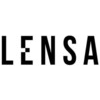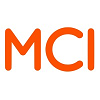Entry Level Qualifications
Masters Degree in Social or Behavioral Science required. Professional licensure is required. If not, must be qualified to make application for ALC, LPC, LMSW, LICSW, or LMFT licensure within 90 days of hire.
Minimum of two years working experience in addictions treatment. Previous training and / or experience to demonstrate competency with a special population (e.
g., Adult or Adolescent population). Must be capable of administering CPR and being certified. Must be emotionally and physically capable of functioning under stressful conditions.
Maintain records and have good communication skills.
1.Walk within the facility approximately 1 / 2 mile per 8 hour shift.
2.Must be able to continuously sit from 1 / 2 hours up to 4 hours per 8 hour shift.
3.Must be able to see (corrected) and hear (hearing aid acceptable).
4.If recovering, three years of continuous verifiable sobriety.
Provide case management in accordance with established treatment procedures and professional code of ethics. Assure documentation reflects the care delivered.
Be available for work as scheduled.
Know and abide by the general provisions of 42 CFR Part 2, Confidentiality of Alcohol and Drug Abuse Patient Records ; and 45 CFR Health Insurance Portability and Accountability Act .
This position has unrestricted access to patient identifying information and patient health information.
Essential Functions :
1.Conduct a comprehensive Psychosocial Assessment.
2.Evaluate and integrate assessment findings from all disciplines and databases into a clinical summary.
3.Transform issues identified in the treatment focus of the clinical summary into treatment plans with specific goals, objectives and corresponding treatment interventions.
4.Clearly and legibly document the patient's clinical course of treatment, in the progress notes.
5.Manage and coordinate the patient's work on treatment objectives while keeping the patient, clinical team, payers, and referral sources involved and / or informed of the patient's progress or lack of progress as appropriate.
6.Formulate and document a discharge summary that summarizes significant findings, course and progress of the patient with regard to each identified clinical problem, course of treatment and the final assessment of patient's condition initially, during treatment and at discharge.
7.Integrate working knowledge of 12-Step Programs and Principles into the therapeutic process and treatment plan while maintaining a professional treatment focus.
8.Manage caseload, documentation requirements and treatment delivery responsibilities in a professional and acceptable manner.
9.Conduct individual counseling sessions appropriate for the treatment of the addictive disorders.
10.Conduct group therapy sessions appropriate for the treatment of addictive disorders.
11.Conduct specialty groups that are relevant to addiction treatment.
12.Perform conjoint family counseling, integrating a complete understanding of the underlying dynamics of codependency and the effects of addiction of families.
13.Conduct basic education lectures and presentations relevant to addiction treatment.
14. Must maintain a professional demeanor and appearance, must not appear impaired or disoriented, but rather must present coherent and articulate speech, kept appearance, alert, oriented, and responsive to patients' needs and concerns.
15. Perform supervision, if assigned, and document supervision of supervisee according to policy and procedure.
16.Must be able to work in a cooperative manner with co-workers, managers, clients and prospective clients.
17.Must be able to work in a constant state of alertness as to perform the job in a safe manner.









